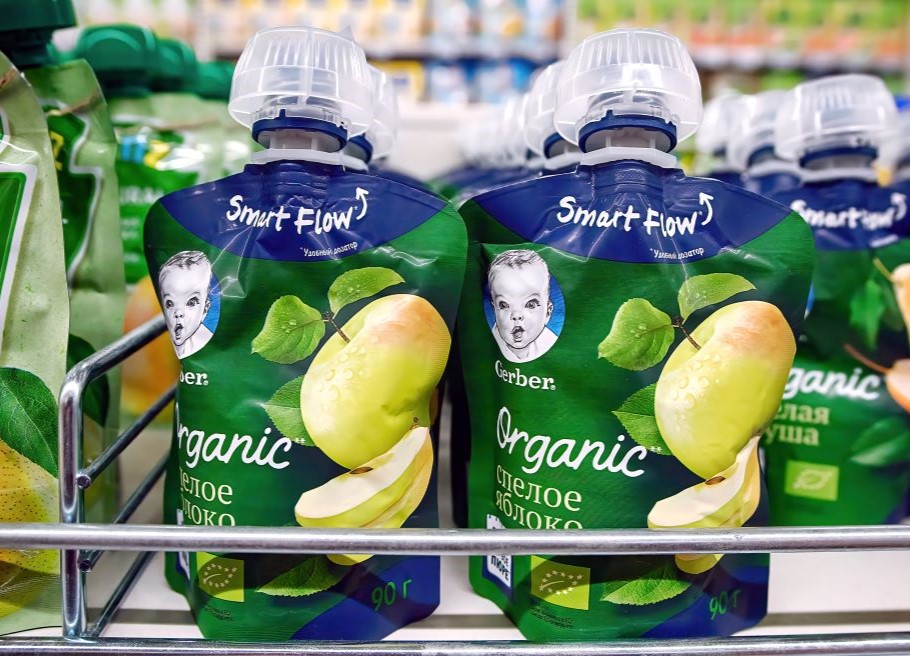Utilizing Tools and Technology to Safeguard Against Food Fraud Risks
By Neil Coole
In a world where our grocery store shelves, refrigerators, and freezers are filled with the food and drinks we cherish, all presented with assurances of purity and quality, the unsettling truth of food fraud persists, lurking in the shadows. From deceptive packaging to deliberate adulteration, food fraud is an age-old problem that remains an ever-present danger, leading to loss of life, consumer distrust, and heightened food safety hazards.
What is Food Fraud?
Food fraud is the manipulation, misrepresentation, or adulteration of food products at any stage of the farm-to-table supply chain. This fraudulent practice can manifest in various forms, including altering raw materials, mislabeling ingredients, substituting components, or contaminating the final product or its packaging.
History tells us that the primary motivation behind food fraud is economic gain. By substituting or adulterating ingredients, suppliers aim to lower their costs while maintaining or even increasing their selling prices, therefore increasing their profits. While most food fraud cases do not result in a consumer death or injury, when profit is prioritized over people, there is always a food safety risk.
Greenwashing is where food manufacturers have made unsubstantiated claims about their environmental commitments or how their products are more sustainable.
Today, the industry stands at the crossroads of new and exciting technological advancements, increased regulatory pressures, and elevated ethical scrutiny. It is vital that we work collaboratively with the food industry to unravel the tangled web of deception and fraud that exists in our food supply chain.
Deadly Incidents of Food Fraud
There are, unfortunately, horrific examples of food fraud throughout history that have killed trusting and unsuspecting consumers, all in the name of maximizing profits, gaining a competitive advantage, or exploiting market opportunities.
Over the past few decades, there have been several infamous cases of food fraud. For example, in 1981 1,000 people died after consuming poisoned olive oil in Spain. In this case, a chemical that is normally used to produce plastics and dyes was intentionally added to rapeseed oil that was for sale as ‘olive oil’.
Then, there is the infamous melamine scandal that shook the world in 2008. In an attempt to increase protein levels, corrupt manufacturers in China added melamine, which is a toxic chemical used in plastics and fertilizers, to infant formula, resulting in the deaths of six infants and the hospitalization of thousands more. In this case, there were 17 people involved in producing, selling, buying, and adding melamine to raw milk. Two top officials were sentenced to death, with several others receiving life sentences.
The motivation in both incidents was economic gain, and in both cases, there was absolutely no consideration of the harm of these decisions on the consumers who had placed their trust in the food supply system.
The Risks of Deceit
More recently, more food and beverage companies and retailers are falling foul of greenwashing, which is the intentional process of conveying a false impression about how a company’s products or services are environmentally beneficial.
Many food manufacturers have made unsubstantiated claims about their environmental commitments or how their products are more sustainable, not to mention the proliferation of mislabeled packaging and false health claims. Additionally, advancements in technology have made it easier than ever for fraudsters to deceive consumers, further complicating efforts to ensure the safety and authenticity of our food supply.
Navigating the Future
One of the primary challenges in combating food fraud lies in the vast and complex global supply chains, where products navigate multiple borders and undergo various processing stages. Enhanced regulation, robust testing protocols, and greater transparency throughout the supply chain are essential to safeguard the well-being of consumers.
Some organizations use horizon-scanning subscriptions to stay informed of food fraud events and threats, while others use supplier audit frameworks to ascertain the level of risk and control within which their suppliers operate.
Furthermore, fostering a culture of accountability and ethical responsibility within the food industry is paramount in restoring trust and confidence in the products we consume.
There are also some incredibly useful tools available to organizations throughout the food supply chain. These tools are designed to enhance food defense plans, teams, risk assessments and preventive controls, such as PAS 96, which is a free-to-download food protection guide on protecting food products from deliberate attacks, including cyberattacks, terrorism, and food fraud.
PAS 96 outlines how organizations can intentionally build diverse cross-functional teams to improve food defense plans. With a focus on reducing the likelihood of food fraud, PAS 96 also helps food manufacturers:
- Identify vulnerabilities in the supply chain that could be exploited for fraudulent activities.
- Implement programs to enhance traceability and transparency throughout the supply chain.
- Develop strategies for authenticating ingredients and products to prevent adulteration or substitution.
- Establish controls and monitoring mechanisms to detect and deter fraudulent activities.
Overall, adopting PAS 96 guidelines can help food manufacturers enhance the security and integrity of their products, mitigate risks associated with deliberate attacks and fraud, and demonstrate a commitment to ensuring the safety and quality of their food and drink products.
When it comes to innovative solutions that could have a positive impact, emerging technologies like Artificial Intelligence (AI), Machine Learning (ML), and Natural Language Processing (NLP) dovetail nicely with established safety standards. The ability to proactively identify and prevent food fraud can boost both safety and consumer confidence. While this is still relatively new, there are some important lessons to learn from other high-risk industries like medical devices, aerospace, and pharmaceuticals who are embracing the power of AI.
The convergence of artificial intelligence, alongside the use of standards, presents a powerful resource in the fight against food fraud. By proactively identifying risks and ensuring product integrity, these technologies not only safeguard consumer health but lend credibility to the food industry. Embracing these innovations in conjunction with robust regulatory frameworks will pave the way for a future where food fraud is minimized, and consumer trust and safety are at the forefront.
About the Author
Neil Coole is the Global Director – Consumer Retail and Food Sector for BSI. He specializes in leveraging industry standards to tackle critical challenges and drive strategic advancements. His professional background spans the UK, the US, New Zealand, and Australia. Coole is a transformative leader who excels at organizational leadership, strategic partnerships, and sustainable supply chain management.

-
 FeaturedRisk management
The Cost of a Breach: What a Cyberattack Could Mean for Food Safety Recalls
FeaturedRisk management
The Cost of a Breach: What a Cyberattack Could Mean for Food Safety Recalls
-
 FeaturedRisk management
Securing the Food Chain: How ISO/IEC 27001 Strengthens Cybersecurity
FeaturedRisk management
Securing the Food Chain: How ISO/IEC 27001 Strengthens Cybersecurity
-
 FeaturedRisk management
Revolutionizing Food Safety Training: Breaking Out of the “Check-the-Box” Mentality
FeaturedRisk management
Revolutionizing Food Safety Training: Breaking Out of the “Check-the-Box” Mentality
-
 GFSI Standards
GFSI 2025: Building Trust, Tech-Forward Solutions, and Global Unity in Food Safety
GFSI Standards
GFSI 2025: Building Trust, Tech-Forward Solutions, and Global Unity in Food Safety
-
 FeaturedFood Safety
Integrated Pest Management: Strategies to Protect Your Brand’s Reputation
FeaturedFood Safety
Integrated Pest Management: Strategies to Protect Your Brand’s Reputation
-
 FeaturedFood Safety Culture & Training
No Open Door Policy: Challenges That Impact Pest Control in Food Processing Plants
FeaturedFood Safety Culture & Training
No Open Door Policy: Challenges That Impact Pest Control in Food Processing Plants




